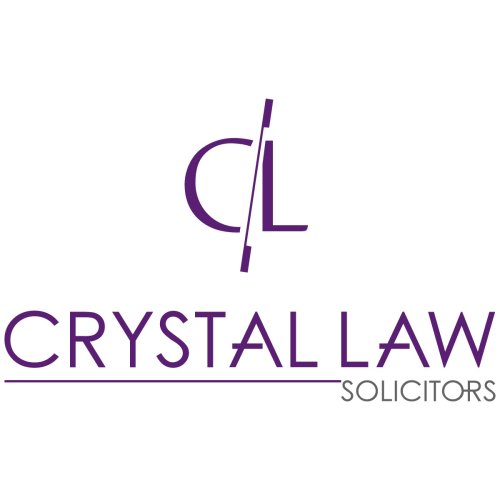Best Restructuring & Insolvency Lawyers in Leicester
Share your needs with us, get contacted by law firms.
Free. Takes 2 min.
List of the best lawyers in Leicester, United Kingdom
About Restructuring & Insolvency Law in Leicester, United Kingdom
Restructuring and Insolvency law addresses the financial difficulties faced by businesses and individuals, helping them navigate debt problems, negotiate with creditors, and if necessary, manage the process of liquidation or administration. In Leicester, as elsewhere in England and Wales, these matters are governed by national legislation but often involve local courts and professionals. The city has a vibrant business community, which means expertise in restructuring and insolvency is in consistent demand, both for large companies and small businesses, as well as individuals facing personal insolvency.
Why You May Need a Lawyer
There are several scenarios where seeking legal assistance is crucial in restructuring and insolvency matters. Some common situations include:
- Facing mounting debts and creditor pressure as a business owner or individual.
- Receiving statutory demands or winding up petitions.
- Needing professional advice on Company Voluntary Arrangements (CVAs) or Individual Voluntary Arrangements (IVAs).
- Requiring guidance during administration, liquidation, or receivership.
- Wanting to understand directors' legal responsibilities and potential liabilities.
- Restructuring a business to avoid insolvency or to ensure future financial health.
- Disputing a bankruptcy order or seeking alternatives to bankruptcy.
- Creditors aiming to recover debts through legal processes.
A specialist solicitor can clarify your options, help fulfil legal obligations, handle negotiations, and represent your interests in court or with creditors.
Local Laws Overview
The legal framework for restructuring and insolvency in Leicester is primarily set out by national laws such as the Insolvency Act 1986, the Companies Act 2006, and related rules and regulations. Key aspects relevant to Leicester include:
- Insolvency procedures are administered by local County Court and High Court registries. Leicester businesses and individuals may have their cases heard locally.
- Licensed insolvency practitioners operate within Leicester to manage bankruptcies, administrations, and voluntary arrangements.
- The law provides several formal options: CVAs, IVAs, administration, receivership, and compulsory or voluntary liquidation.
- Directors can face personal liabilities if shown to have engaged in wrongful trading or other misconduct.
- The laws aim to provide fair treatment to creditors while also supporting genuine business rescue and personal recovery where feasible.
It is important to seek advice specific to your circumstances and location, especially as timing and local practice can significantly affect outcomes.
Frequently Asked Questions
What is the difference between restructuring and insolvency?
Restructuring refers to the process of reorganising a company’s financial or operational structures to avoid insolvency. Insolvency is the state where an individual or company cannot pay their debts as they fall due, and may need to undertake formal insolvency procedures.
How do I know if my business is insolvent?
A business is generally considered insolvent if it cannot pay debts when they are due, or if its liabilities exceed its assets. There are specific legal tests for insolvency, so it is wise to consult an insolvency specialist.
What is a liquidation, and how does it work?
Liquidation is the winding up of a company’s affairs, selling off assets to pay creditors. This can be voluntary (initiated by shareholders or directors) or compulsory (ordered by a court upon creditor petition).
What is an Individual Voluntary Arrangement (IVA)?
An IVA is a formal agreement between an individual and their creditors to pay back debts over time, usually with reduced payments. It is arranged and supervised by a licensed insolvency practitioner.
Can I avoid bankruptcy if I am struggling with personal debts?
Bankruptcy is not the only solution. Options like IVAs or Debt Relief Orders may be preferable, depending on your circumstances. A lawyer or insolvency practitioner can advise on alternatives.
How can directors be held personally liable in insolvency?
Company directors can become personally liable if found guilty of wrongful or fraudulent trading, or if they breach duties owed to creditors during insolvency. Proper legal advice is essential for directors.
Do I have to close my business if I am insolvent?
Not always. Procedures like administration and CVAs are designed to help save viable businesses and jobs. Options depend on the business’s finances, structure, and prospects.
What happens to employees in business insolvency?
Employees have certain statutory rights in insolvency, such as redundancy pay and claims for unpaid wages. The position depends on the type of insolvency process being followed.
Can creditors still pursue me during an insolvency process?
Once a formal insolvency procedure is underway, there are usually legal restrictions on creditor actions, such as a moratorium on enforcement or court proceedings.
Where will my restructuring or insolvency case be handled in Leicester?
Most matters are dealt with at the Leicester County Court or the Birmingham District Registry of the High Court for larger corporate cases. Your solicitor will advise on the specific venue for your situation.
Additional Resources
If you are seeking further information or assistance, the following resources may be helpful:
- Insolvency Service - a government agency providing advice and regulation of insolvency practitioners.
- Citizens Advice Leicester - offers free, confidential advice on debt and insolvency options.
- Leicester County Court - where most local insolvency proceedings are handled.
- Licensed Insolvency Practitioners - professionals regulated by bodies such as the Insolvency Practitioners Association (IPA) or ICAEW.
- Law Society - for finding qualified restructuring and insolvency solicitors in Leicester.
Next Steps
If you are facing financial distress, considering restructuring, or have received notice of insolvency proceedings, it is important to take action promptly. Your next steps should be:
- Collect all relevant financial information and documentation.
- List your main debts, creditors, and business assets or personal assets if applicable.
- Contact a qualified restructuring and insolvency solicitor in Leicester for an initial consultation.
- Be open and honest about your situation to ensure the advice you receive is tailored to your needs.
- If you are a director, ensure you understand your legal duties and seek advice before taking further action.
Taking early legal advice is vital in managing risks, protecting your interests, and potentially preserving your business or achieving the best possible outcome in difficult circumstances.
Lawzana helps you find the best lawyers and law firms in Leicester through a curated and pre-screened list of qualified legal professionals. Our platform offers rankings and detailed profiles of attorneys and law firms, allowing you to compare based on practice areas, including Restructuring & Insolvency, experience, and client feedback.
Each profile includes a description of the firm's areas of practice, client reviews, team members and partners, year of establishment, spoken languages, office locations, contact information, social media presence, and any published articles or resources. Most firms on our platform speak English and are experienced in both local and international legal matters.
Get a quote from top-rated law firms in Leicester, United Kingdom — quickly, securely, and without unnecessary hassle.
Disclaimer:
The information provided on this page is for general informational purposes only and does not constitute legal advice. While we strive to ensure the accuracy and relevance of the content, legal information may change over time, and interpretations of the law can vary. You should always consult with a qualified legal professional for advice specific to your situation.
We disclaim all liability for actions taken or not taken based on the content of this page. If you believe any information is incorrect or outdated, please contact us, and we will review and update it where appropriate.












